Mbombela – South Africa and the European Union (EU) concluded their annual summit on a positive note – a sign that they could be closer to resolving their differences.
The two sides, which have disagreed in the past on the approach to a number of issues including Zimbabwe, Libya and the regional trade partnerships, seem to have kissed and made up when they ended the one-day summit on Thursday, held at the Kruger National Park, speaking with one voice.
The partnership between the two sides emerged more mature and characterised by mutual respect and burgeoning cooperation.
President Jacob Zuma headed South Africa’s delegation, while the European side included the President of the European Council, Herman Van Rompuy and European Commission President, Jose Manuel Barroso.
They declared that they were ready to put the past behind them and work as partners to ensure equitable results.
In their communique, they said they have cleared the main hurdles in the Economic Partnership Agreement (EPA) with the Southern African nations. Namibia, South Africa and Angola are the only three countries out of seven in the SADC-EPA configuration group that have not yet signed the interim agreement that commits to certain trade agreements with the EU, in an effort to create free trade areas (FTAs).
In the past decade, South Africa has raised delicate questions about market access and why the trade agreements favoured Europe, instead of it being mutually beneficial.
“There is an agreement that we need to find an agreement. We are both very optimistic that the negotiations are going to go forward,” Zuma told reporters after the summit.
Barroso added that they “have taken stock of the EPA negotiations and cleared up some important misunderstandings that could have been a hindrance to signing.”
In their joint communique, the leaders reaffirmed a mutually beneficial agreement that would enhance growth and generate jobs.
“We reiterate our strong commitment to conclude the negotiations as a matter of priority. We are convinced that the solution to the pending issues can be found.”
On Libya, Van Rompuy said even though they had differences in the past, they share the same vision. He reiterated Zuma’s words that “the future of Libya belongs to the Libyan people”, hence they should be the ones deciding it.
Zuma and the African Union (AU) have criticised the NATO bombing campaign in Libya and the manner in which the EU has handled the crisis.
Although about 20 African countries have recognised the National Transitional Council (NTC), the AU has so far refused to do so and is instead sticking to its roadmap for Libya, which calls for an inclusive government in Tripoli, while the EU has for its part recognised the rebels as the legitimate interim government.
Van Rompuy said the NTC is the legitimate representative of the Libyan people for the time being, but they still have “to broaden the interim government to make it more representative of the Libyan people” — a view that has been shared by the AU and Zuma before.
Van Rompuy added that after meeting Zuma, it was “essential to help the country to succeed in its transition to an inclusive democracy.”
In the communique, the two sides also agreed that the AU still had an important role to play in supporting the people of Libya in building a democratic, independent and united country.
“The goal is to build a new, democratic and pluralistic Libya in which human rights, fundamental freedoms and justice will be guaranteed and prosperity shared.”
Zuma said he was pleased with the content and the depth of the discussion they had on the issue.
On differences over Zimbabwe, both sides agreed on the need to end the political crisis in that country. Zuma, who is also the mediator in the power-sharing government between Robert Mugabe and his long-standing rival Morgan Tsvangirai, has been calling on Western nations to lift the travel ban, assets freeze and arms embargo imposed on Mugabe and his inner circle.
The President has maintained that the sanctions would shore up the fragile unity government and show that there are no favourites.
Van Rompuy said they had already lifted some restrictive measures a few months ago. However, he said “a credible roadmap for elections is of utmost importance. It will facilitate for the EU a review of restricted measures.”
Also discussed in the summit was the Sudanese tensions, which persist even after the north and south split into two countries in July. Both sides urged for the finalisation of the outstanding issues such as citizenship, demarcation and oil revenues. However, they committed to further explore the means of cooperation to support and build South Sudan.
Climate change was also on the agenda, as the next UN conference in Durban looms.
SA and the EU shared the view that the summit must be an opportunity to agree on actions that will make key decisions reached in Cancun fully operational.
“We strive jointly for an ambitious, comprehensive and balanced outcome,” reads an abstract from the communique.
Zuma, who described the discussion as “fruitful and deep”, said the summit has helped to further consolidate continued dialogue and engagement with the EU on the matter.
He also commended the EU’s commitment to trade and aid, despite the debt crisis engulfing some countries in the 27-member bloc, threatening to destabilise the euro zone.
The EU is instead forging ahead and keeping up to its commitments as they also look into establishing a South African Development Partnership, the purpose of which would be to look at new opportunities of trade and cooperation in other areas such as infrastructure, education, ITC and crime and justice.
SA is one of the EU’s biggest recipients of development assistance; most notable is the recent 126 million euro grant to the Health Ministry to bolster the public health system, especially in the fight against HIV and Aids and tuberculosis.
During 2007 to 2013, South Africa is set to receive 980 million euros from the EU, or an average of 140 million euros a year.
“We consider all that has been achieved so far as a demonstration of the level of commitment and importance by both parties to the full realisation of strong and mutually beneficial relationship,” added Zuma.
The next annual meeting will be held in Brussels in 2012. – BuaNews




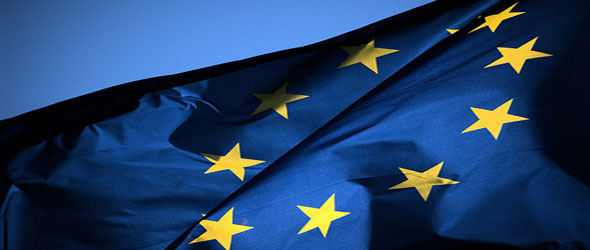
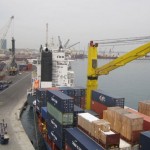
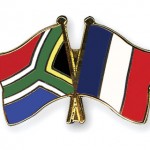
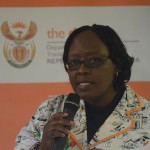
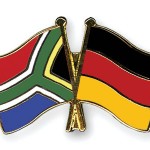


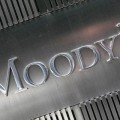
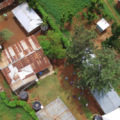
[…] Improved EU relations is a post from: South Africa Business […]